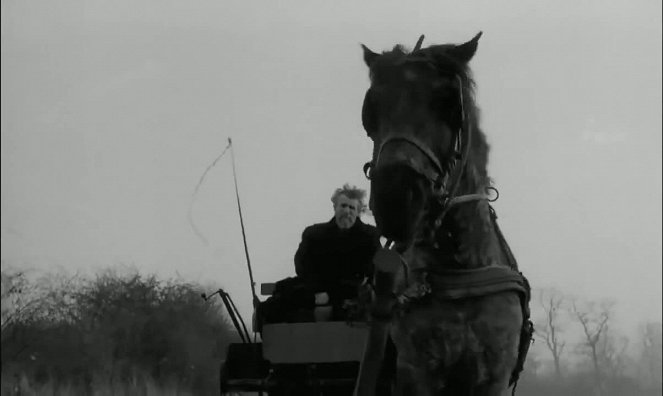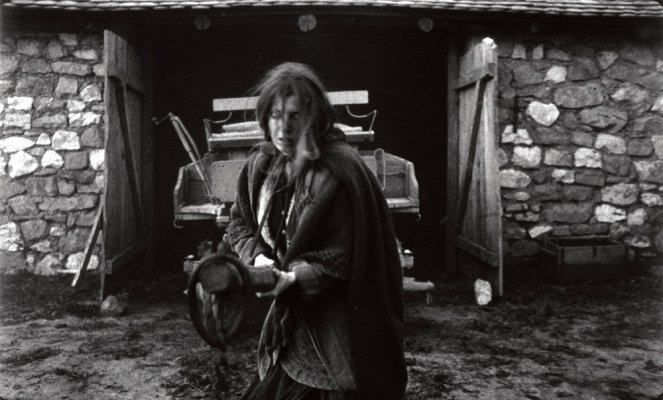Tartalmak(1)
A cím arra a lóra utal, amelyet Friedrich Nietzsche pillantott meg 1889. január 3-án, torinói lakásából kilépve. A kocsi elé kötött ló megmakacsolta magát, mire a kocsis ostorral ütlegelni kezdte. A filozófus odalépett a lóhoz, majd hatalmas zokogásban kitörve átölelte. Miután szolgája hazavitte, ágyba tette Nietzschét, aki innentől kezdve élete hátralévő 10 évét némán, szellemi leépülésben töltötte. (CirkoFilm)
(több)Videók (2)
Recenziók (2)
Béla Tarr is simply not a filmmaker I could ever like. His style of filmmaking is too poetic, it's too much of a parable that ultimately tells me nothing. It's hard to finish the film because you feel like it's about nothing. Nevertheless, in his films, you'll find scenes that might even make you think. I don't think I'll be watching any more of his films.
()
Béla Tarr, like Nietzsche once did, touched his horse and was speechless. The Turin Horse is not a film ABOUT the Turin horse, it IS the Turin horse. A narratively parched image of a world in which nothing remains but despair, automatism, and emptiness. An intellectually monolithic image of a fading world from which meaning and hope depart as the last sigh. All that remains is the darkness, the gale, and the dictation of nothingness that mankind has brought onto itself. Along with Tarr's personal myth, The Turin Horse is one of the great achievements of contemporary art, Gesamtkunstwerk in an almost forgotten traditional sense, the narrative termination of the contract with the viewer and the world, the undiluted stumbling towards the final darkness. A film that resonates, and I daresay it will one day be one of the great reflections of the end of civilization.
()




Hirdetés